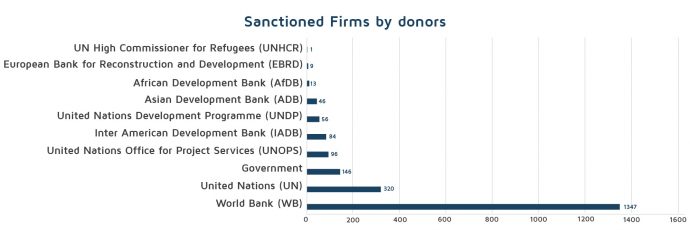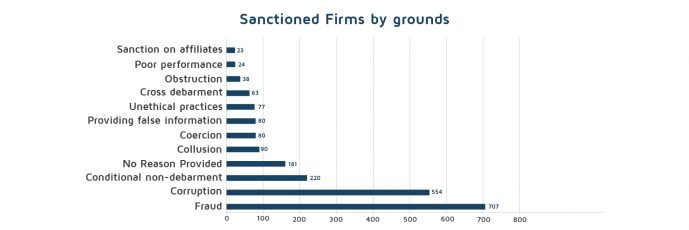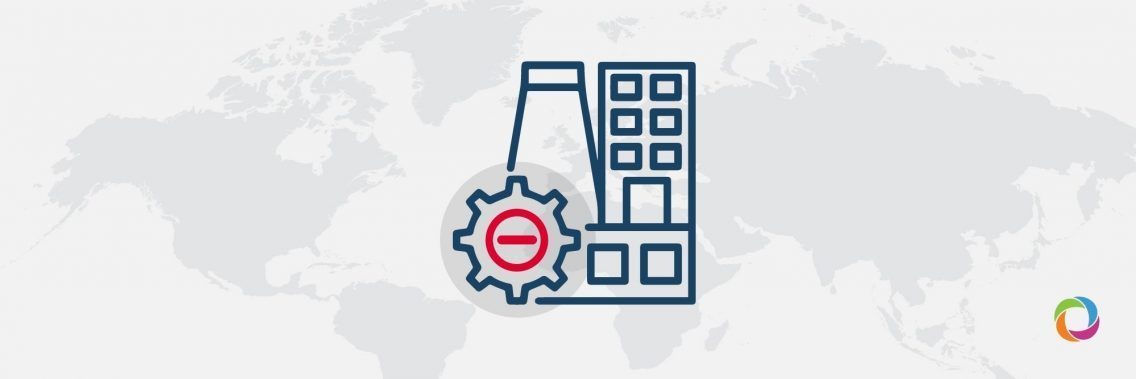Tackling corruption, fraud or other similar wrongdoing is critical to achieving sustainable development and poverty reduction. This is why donors frequently blacklist organisations that violate the guidelines of various schemes and commit irregularities. Let’s find out the top reasons why firms have been sanctioned by donors in international development.

According to the DevelopmentAid database, over 2,000 firms are sanctioned by donors in international development. Most of these have been sanctioned by the World Bank, followed by the United Nations, governments, the United Nations Office for Project Services, and the Inter-American Development Bank.

The biggest number of firms, over 700, have been blacklisted by donors or fraud. According to the World Bank, a fraudulent practice is any act or omission, including a misrepresentation, that knowingly or recklessly misleads, or attempts to mislead, a party to obtain a financial or other benefit or to avoid an obligation.
Corruption is the second reason why more than 500 firms have been sanctioned by donors. A corrupt practice is defined as the offering, giving, receiving or soliciting, directly or indirectly, of anything of value to improperly influence the actions of another party. Past corrupt practice cases have involved the payment of bribes to influence tender processes, secure contracts, influence the implementation of projects or facilitate the processing of invoices and the accepting of bribes to award contracts to particular contractors, etc.
Around 200 firms have been blacklisted by donors for conditional non-debarment. Generally, the World Bank (WB) may apply this to sanctioned parties affiliated with the respondent that are not directly involved in the Sanctionable Practice in which the respondent has engaged, but which bear some responsibility thereof. The WB may also apply this to respondents that have demonstrated that they have taken comprehensive corrective measures and that such other mitigating factors apply, so as to justify non-debarment.
A total of 90 firms have been sanctioned for collusive practice. This is an arrangement between two or more parties designed to achieve an improper purpose, including improperly influencing the actions of another party. Past collusive practices cases have involved parties simulating competition by bidding with knowledge of each other’s prices or agreeing in advance to win different tenders and share the profits, making arrangements with procurement staff, modifying bid specifications or artificially inflating prices.
A further 80 firms have been sanctioned by donors for providing false information. Past cases have involved submitting false information relating to the manufacturer in the bid, claiming false experience to comply with the bid requirements and falsifying documents to support an expression of interest for a contract etc.
This information is available only to DevelopmentAid members, click here to see all the sanctioned firms by donors in international development.

